By Michael D. Hull
Just after midnight on September 3, 1939, a stylish young former socialite from Boston, Massachusetts, made her way toward London aboard the Harwich boat train after crossing the English Channel.
Virginia Cowles, a foreign correspondent for the Hearst newspaper group and the London Sunday Times, was returning from a stint in Berlin when she saw flashes on the southern horizon and heard a series of distant explosions. Before climbing onto a train bound for London’s Liverpool Street Station, Miss Cowles asked a dockworker if war had been declared. “Not yet,” he replied, “but I hope it won’t be long now. This waiting around is making us all nervous.”
When the newswoman reached the outskirts of the British capital, she was met by torrential rain and realized that she had witnessed a violent thunderstorm and not the outbreak of a European war. Yet Miss Cowles, who had been awakened early on September 1 by the heavy tread of storm troopers on Berlin’s Unter den Linden, still felt apprehensive.
At the same time as Virginia Cowles was heading into London, young Lieutenant Peter Parton of the Royal Artillery was watching a late showing of Wuthering Heights at the cinema in the little Somerset port of Watchet. Halfway through the projection of the newly released film starring Laurence Olivier and Merle Oberon, an ominous message was suddenly flashed on the screen: “All officers and soldiers return to your barracks immediately.” Parton feared that, in the British vernacular of the time, “the balloon was about to go up.”
Tethered by heavy wire cables, thousands of large barrage balloons were hoisted over many British cities, ports, and military installations as a deterrent to dive-bombers and other low-flying enemy aircraft. They downed seven German planes in February-March 1941 and later destroyed 231 V-1 rockets.
Lieutenant Parton was right on the night of September 2, 1939. Several years of European appeasement and months of diplomatic maneuvering and mounting tension were coming to an abrupt end. Two days before, on Friday, September 1, massed German forces had burst without warning into Poland. British and French ultimatums to Nazi dictator Adolf Hitler for a withdrawal went unanswered, and it was now just a matter of hours before the hostilities would widen into full-scale war.
A mere two decades after the end of World War I, Europe was on the brink of becoming embroiled in an even more catastrophic struggle—an inevitable yet unnecessary war. It could have been averted in the 1930s if the free nations had stood together firmly against the spread of tyrannical fascism across Europe. Now, peace had drained away like grains of sand in an hourglass.
“A Day of Unusual Beauty”
Sunday, September 3, 1939, dawned as a sunny, dreamlike day of apprehension that would be forever remembered by all who experienced it. Yorkshire-born novelist Storm (Margaret) Jameson poetically recalled “a day of unusual beauty; clear, hot sun; dazzingly white clouds beneath a blue zenith; a high, soft wind.”
While immaculately dressed diplomats still scurried about the European capitals that morning, British Conservative Prime Minister Neville Chamberlain presided over an emergency session of his cabinet in London. In Paris, French government officials insisted on trying to gain more time to mobilize their powerful army before going ahead with another ultimatum to Berlin, but British service chiefs and some cabinet members wanted to get on with it. Secretary of State for War Leslie Hore-Belisha called for a 6 am deadline.
Eventually, it was agreed that Berlin would be issued with an ultimatum expiring at 11 am, demanding that its forces cease hostilities in Poland. After the shameful era of appeasement during which the well-meaning Chamberlain had mistakenly believed that Hitler’s word could be trusted, the honor of the British Empire was now at stake. As David Margesson, chief whip of the House of Commons, told a colleague, “It must be war, old boy. There’s no other way out.”
It was left to Sir Nevile Henderson, the British ambassador in Berlin, to deliver a note to Hitler’s foreign minister, Joachim von Ribbentrop, at 9 am (8 am London time). The pompous, bumbling Ribbentrop left it to Hitler’s chief interpreter, Paul Schmidt, to accept the British ultimatum. Henderson liked Schmidt and told him, “I am sincerely sorry that I must hand such a document to you in particular.”
Schmidt had overslept for the 9 am meeting but was just in time to take delivery of the note from Henderson. The German made his way from the Foreign Ministry building in Wilhelmstrasse to the Reich Chancellery, where he slowly read the ultimatum for Hitler and Ribbentrop. “When I finished,” Schmidt reported, “there was complete silence. Hitler sat immobile, gazing before him.” Moments later, the Führer turned to Ribbentrop with a fierce look and asked, “What now?” Schmidt withdrew.
The note gave Hitler three hours in which to order a cessation of operations in Poland. He saved his wrath for his inner circle—Ribbentrop, Nazi Party deputy leader Rudolph Hess, SS chief Heinrich Himmler, and Propaganda Minister Josef Goebbels. The Poles, ranted Hitler, were just a miserable rabble, and it was a “disgrace” to treat them as a sovereign nation. The British understood this, he said, yet they were prepared to pillory him for “recognizing natural realities.”
France’s ultimatum was telephoned to the French Embassy in Berlin, and at 10 am in London BBC radio announcer Alvar Liddell told listeners to expect a statement from the prime minister in an hour’s time. Just before 11 (London time) on that fateful morning, the Paris ultimatum was delivered to the German Foreign Ministry by French Ambassador Robert Coulondre. This time, Ribbentrop condescended to meet him. The French envoy asked if Ribbentrop was able to give a satisfactory reply to the French demand for a German withdrawal from Poland. The foreign minister replied in the negative and accused France of aggression.
Meanwhile, in London, air-raid sirens echoed across the rooftops. But they were premature.
Miles away in Munich that day, Gauleiter Adolf Wagner was handed an envelope by a 25-year-old English socialite. She was Unity Valkyrie Mitford, a blue-eyed blonde and the unmarried daughter of the eccentric Lord Redesdale. Wagner opened the envelope to discover a suicide note. A member of Hitler’s Munich salon, Unity had fallen in love with the Führer and had pleaded with him to maintain good relations with Britain. The prospect of war between the two countries was too much for her, she wrote, so she had decided to “put an end to herself.” Unity went into Munich’s Englischer Garten and shot herself in the head with a small-caliber pistol.
Hitler ordered specialists to care for her, and she was taken to a clinic. As soon as she was able to travel, Unity was sent home to England in a special railway car by way of Switzerland. Eight years later, she succumbed to the bullet lodged in her brain.
11 in the Morning at No. 10
At 11:14 on the morning of Sunday, September 3, mustached, 70-year-old Prime Minister Chamberlain—the principled, soft-spoken peacemaker who had exhausted himself trying to avert a European war—stared balefully at a microphone in the cabinet room at No. 10 Downing Street and broadcast to the British people. His heart was heavy. BBC announcer Liddell observed that the prime minister looked “crumpled, despondent, and old.” He had done everything he could, said Chamberlain, but there had been no response to the latest ultimatum, so “a state of war exists between His Majesty and Germany as from 11 o’clock today.”
In a resigned, mournful tone, the prime minister declared, “You can imagine what a bitter blow it is to me that all my long struggle to win peace has failed. Yet I cannot believe that there is anything more or anything different that I could have done, and that would have been more successful….We and France are today, in fulfillment of our obligations, going to the aid of Poland, who is so bravely resisting this wicked and unprovoked attack on her people. We have a clear conscience. We have done all that any country could do to establish peace….
“Now, may God bless you all. May He defend the right. It is the evil things that we shall be fighting against—brute force, bad faith, injustice, oppression, and persecution. And against them I am certain that the right will prevail.”
Chamberlain was courageously declaring a war he had not wanted. Peace would have been preferable. He had hoped that Hitler would somehow prove to be a man of his word, yet, by the beginning of 1939, he had few illusions about him. That March, Chamberlain told a guest that the Nazi dictator was “the blackest devil he had ever met.” The prime minister had come to recognize the strong possibility of war, and, like much of the British and French public, was ready to accept it.
Few BBC listeners were surprised by Chamberlain’s announcement, but most were nevertheless stunned into silence. For many, grim memories of 1914-1918 were still too clear.
King George VI, a young Royal Navy midshipman when hostilities broke out early in August 1914, wrote in his diary, “Those of us who had been through the Great War never wanted another.” Devastated by the prospect that war was now inevitable, famed pacifist author Vera Brittain, a nurse in World War I, had listened tearfully to the prime minister’s broadcast with her children in their village home. Then she wandered into the nearby woods. “In the sunny quiet of the gorse and heather,” she recalled later, “it was impossible to take in the size of the catastrophe.”
Across the British capital in Hayes, Middlesex, five-year-old Douglas Higgins was sitting halfway up the staircase in his home when Chamberlain spoke. “I had never known a silence before or seen such worry etched on my family’s faces,” he recalled later. “What did it all mean? Apparently, we were at war with Germany. What was war and who was Germany? I rushed downstairs and clung to my mother, who was gently sobbing. I had never seen her cry before, and hated the man on the wireless for making her cry.”
Chamberlain told a packed House of Commons, “This country is now at war with Germany,” and then, according to a Daily Telegraph reporter, “a profound silence fell upon the House.” It was a silence, he wrote, “not of surprise or anxiety, as the calm, stern faces testified, but of grim satisfaction…. Hundreds of men on the crowded green benches drew a long breath of relief that the issue was declared and joined beyond a peradventure.” The diplomats’ gallery in the House was packed that day with ambassadors from France, Poland, the United States, Belgium, Spain, Portugal, Turkey, China, Argentina, and Brazil.
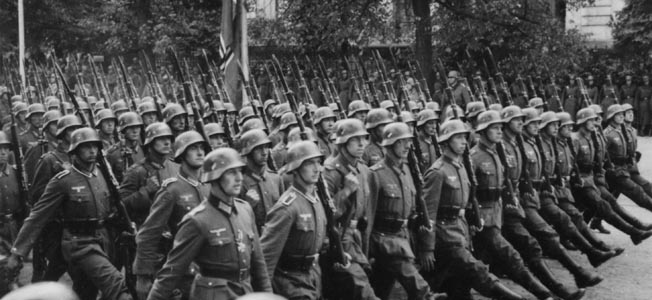
The Daily Telegraph recorded, “The truth was that Parliament, and indeed the nation, had been on tenterhooks for weeks, even months, waiting for war. Nobody was unaware of the ominous events on mainland Europe; the papers had been full of advice on air-raid procedures, and the Navy had already taken part in a plan to evacuate Polish ships in anticipation of a conflict.”
“A Calm That Was Deeply Impressive”
The reaction of ordinary Britons to the war declaration was varied. After the initial shock, some felt a sense of relief that all the uncertainty of the past few weeks was over. For people in church on that sunny Sunday morning, it seemed that they were in the right place at such a momentous time. Others thought of survival rather than sermons and set about getting prepared for the worst—making sure there was an air-raid shelter for the whole family and plenty of canned food in the cupboards.
Children old enough to comprehend were excited by the news; there was a possibility that schools might be closed. Because of a widespread fear of German air raids, some city children had already been evacuated in the days before war was declared, and they were with their host families in the provinces when they heard the news.
In London, according to a reporter, news of the declaration of war was taken with “a calm that was deeply impressive.” He wrote, “In an extensive tour, I did not see emotion of any kind.” After the air-raid sirens sounded, streets were cleared speedily. Precautions had been taken. Sandbags were piled high outside municipal buildings, offices, stores, and police stations, and crisscross strips of antiblast tape covered plate glass windows. Firefighting vehicles were on the streets, and policemen, auxiliaries, and bicycle-riding air raid wardens wore steel helmets.
After the premature alerts, hundreds of Londoners carrying gas masks strolled good-humoredly along the thoroughfares. Others wandered and sunbathed in the city’s many leafy parks, as on any other fine Sunday afternoon. Restaurants and cafés were filled.
Britain Prepares For War
But, despite the evident calm and stoicism the British were preparing methodically for war. The War Office opened additional recruiting offices in various London boroughs and suburbs, and urgent calls went out for dockworkers and volunteers for the Royal Engineers, the Army Service Corps, the Medical Corps, and the Ordnance Corps. Conscription had been introduced in April 1939. The War Office also appealed for applications for commissions in the ground forces. Starting on the day war broke out, young men flocked to take the king’s shilling and enlist. Outside the recruiting office in Scotland Yard, an eager group of men hammered on the closed gates and chanted, “Open up, please. We want to join the Army!”
The government’s evacuation program proceeded smoothly, and thousands more women and children crowded city railway stations to board trains taking them to Berkshire, Devon, Somerset, and other rural and seaside counties. By the night of September 4, an estimated three million evacuees were expected to be billeted in new homes, almost half of them from greater London.
Chamberlain and his advisers were taking immediate actions to place the nation on a war footing. It was announced that the seat of government would remain in London for as long as possible, and precautionary measures were issued to prevent people from crowding together and increasing casualty risks from air raids. Instructions were given for the closing of entertainment centers, including cinemas, theaters, and indoor and outdoor sports facilities. Sea travel was limited.
Following an August 1914 precedent, the government declared that Monday, September 4, would be a bank holiday so that financial institutions could complete measures for adapting themselves to the emergency. The stock exchange was also ordered to close. Meanwhile, Whitehall announced that a food rationing program was in place and would be activated within two weeks. The five food groups coming under the system would be meat, butter and margarine, bacon and ham, cooking fats, and sugar.
In Paris, the French ultimatum to Germany expired at 5 pm on September 3. At the Ministry of National Defense, Prime Minister Edouard Daladier conferred with Admiral Jean Darlan, chief of French Naval Forces; General Maurice Gamelin, the national defense chief of staff; and other high-ranking officials. A decree was issued to institute a seven-day working week in all state establishments.
A World-Wide Response
Meanwhile, across the Atlantic in Washington, D.C., President Franklin D. Roosevelt’s secretary, Stephen T. Early, announced that a proclamation was being drawn up to invoke the Neutrality Act, prohibiting the sale or export of arms and munitions to all belligerents. However, to prevent the act from favoring aggressors, an amendment bill had been introduced in the Senate on June 27, proposing a system to favor America’s closest allies, Britain and France.
President Roosevelt had no choice but to promise his people that he would keep America out of the war. Popular support for isolationism was loud and strong. “There will be no blackout of peace in the United States,” declared FDR. Privately, however, he stayed in regular contact with Britain, searching for ways in which he could help without jeopardizing neutrality.
The far-flung British dominions rallied swiftly to the motherland. Australia proclaimed a state of war three hours after Chamberlain’s announcement, and Prime Minister Robert G. Menzies declared in Canberra, “The great family of British nations is now involved in a struggle which we must, at all costs, win. We believe in our hearts that we shall win…. We do not know what lies ahead or the length of the journey, but I urge calmness, confidence, and resolution.”
New Zealand promised “the fullest possible support” to Britain on September 3, and Prime Minister Michael J. Savage pledged, “We range ourselves without fear behind Britain. Where she goes, we go. Where she stands, we stand.”
Canada also vowed assistance to Britain. After a two-hour emergency session in Ottawa on September 3, the cabinet announced that Parliament would meet at the earliest possible date, September 7. Prime Minister William L. Mackenzie King informed Chamberlain, “In the event of the United Kingdom becoming engaged in war in the effort to resist aggression, the government of Canada have unanimously decided, as soon as Parliament meets, to seek its authority for effective cooperation by Canada at the side of Britain.” Canada would officially declare war on September 10, and the first drafts of the 1st Canadian Division sailed for England the following December.
In Cape Town, there was a fierce debate on September 3 over whether South Africa should enter the war. The prime minister, General James B. Hertzog, had pursued a policy of neutrality, but opposition to his stance grew so strong that he was deposed on September 5. He was replaced by Field Marshal Jan C. Smuts, who formed a new government and immediately declared war on Germany. A Boer War commando who had fought the British and then become a staunch ally, the widely revered Smuts had a close relationship with politician Winston Churchill dating back to World War I. He would be made an honorary field marshal of the British Army in 1941.
The Making of the British War Cabinet
Prime Minister Chamberlain announced on the evening of September 3 that King George had approved the makeup of a nine-member war cabinet along the lines of one established in December 1916. Its members were Chamberlain; Sir John Simon, chancellor of the exchequer; Viscount Edward W. Halifax, foreign secretary; Fleet Admiral Lord Alfred Chatfield, minister of defense coordination; Churchill, First Lord of the Admiralty; Hore-Belisha, secretary of war; Sir Kingsley Wood, air secretary; Sir Samuel Hoare, lord privy seal, and Lord Maurice Hankey, minister without portfolio. Sir John Anderson was named home secretary, and Anthony Eden became dominion secretary.
The king also made three appointments at the War Office: General John V. Gort, a World War I Victoria Cross winner, as commander of British Field Forces, General Sir Edmund “Tiny” Ironside, a colorful, bilingual veteran of World War I and Allied commander of the 1918-1919 Russian campaign, as chief of the Imperial General Staff, and General Sir Walter Kirke as Home Forces commander.
“There May be Dark Days Ahead”
As the British laid down war plans on that fateful evening of September 3, other national leaders issued passionate calls for resolve against German aggression. Prime Minister Daladier broadcast to the French people, saying, “We are fighting to defend our land, our homes, and our liberty. Poland has been the victim of the most brutal and cynical of aggressions. The responsibility for the bloodshed rests wholly on the Hitlerite government. The fate of peace was in the hands of Hitler. He has willed war. I salute with emotion and affection our young soldiers who are now going to accomplish the sacred duty which we have ourselves carried out…. Each of us is at his post, on the soil of France, in the land of liberty where respect for human dignity finds one of its last refuges.”
Within days, the British Expeditionary Force led by Lord Gort would cross the English Channel to support the French.
Far away in the Himalayan resort of Simla on the evening of September 3, the Marquess of Linlithgow, viceroy of India, called on the dominion to “take up Germany’s challenge to the great principles of humanity, justice, and morality.” Meanwhile, Generalissimo Francisco Franco, the Spanish leader, broadcast an appeal from the ancient city of Burgos. He urged all nations to avoid the horrors of war such as his country had recently suffered and to do their utmost to localize the new conflict.
Wearing the uniform of a fleet admiral, Britain’s modest, shy monarch broadcast from Buckingham Palace at 6 pm on September 3. “In this grave hour, perhaps the most fateful in our history,” he said, “I send to every household of my peoples, both at home and overseas, this message, spoken with the same depth of feeling for each one of you as if I were able to cross your threshold and speak to you myself. For the second time in the lives of most of us, we are at war. Over and over again, we have tried to find a peaceful way out of the differences between ourselves and those who are now our enemies. But it has been in vain.”
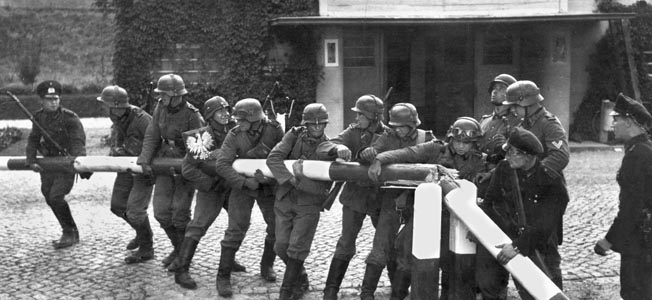
Urging his people to “stand calm, firm, and united at this time of trial,” he continued prophetically, “The task will be hard. There may be dark days ahead, and war can no longer be confined to the battlefield. But we can only do the right as we see the right, and reverently commit our cause to God. If one and all we keep resolutely faithful to it, ready for whatever service or sacrifice it may demand, then, with God’s help, we shall prevail. May He bless and keep us all.”
Reactions to the declaration of war tended to be calm and subdued in the Western capitals on September 3. The celebrated British journalist and sage Malcolm Muggeridge reported, “Like a swimmer tired of battling with a contrary current, abandoning the struggle, and letting himself be carried along by what he had long tried to resist, this last crisis was left to take its course.” Lord Halifax and his undersecretary, Sir Alexander Cadogan, went for a walk that evening in the Buckingham Palace gardens.
On the streets of Paris, newspaper headlines announced, “War: England in a state of war with Germany since 11:00 this morning!” While there was a mood of “something between resolution and resignation” in the provinces, Senator Jacques Bardoux observed that the people of Paris showed an attitude of “moderation and simplicity, of silence and firmness; here, as in Berlin, the cheering crowds of 1914 were absent.”
In the German capital, handsome Albert Speer, Hitler’s favorite architect and would-be production minister, sensed “a desolate mood.” The war declaration echoed from loudspeakers on the streets, and reporter William L. Shirer of CBS watched citizens listen attentively. Their faces reflected “astonishment and depression,” he told American radio listeners, and there was “no cheering, no throwing of flowers, no war fever.” Elsewhere in Germany, the mood was also somber. General Franz Halder, the able chief of the general staff, confided his apprehension to a fellow officer. “Now the English, too,” he said. “The Englishman is tenacious. Now it will last a long time.”
The Fall of Chamberlain, the Rise of Churchill
Prime Minister Chamberlain emerged from the uneasy 1930s and the drift to world war as a tragic, broken figure. Universally branded as a weak-kneed appeaser who sold out to tyranny, he lacked knowledge of foreign affairs and often ignored the advice of Foreign Ministry officials. Yet he was a principled, determined statesman who strove to maintain peace and gain time for rearmament. His fatal weakness lay in his inability to comprehend the type of man with whom he was dealing and continuing to strive for compromise for far longer than was prudent.
Chamberlain’s efforts, starting with his election in May 1937, broke him. A week after the outbreak of war, he told his sister, Ida, that the “days of stress and strain” had caused him to lose all sense of time. “Life is just one long nightmare,” he said.
Heartbroken and discredited, he remained in office, but his political days were numbered as Britain hastily rearmed and struggled along with France to gain enough strength to hold Hitler’s war machine at bay. After only a few months, the ill-fated Anglo-French campaign in April-June 1940 to dislodge German invaders in Norway proved to be his undoing. Chamberlain lost parliamentary and public confidence and was forced to resign on May 10. A national coalition government was created with the confident, irrepressible Winston Churchill as its head.
Chamberlain remained as leader of the Conservative Party and served in the Churchill cabinet as lord president of the council. But illness forced him to resign in October 1940, and he succumbed to cancer the following month.
The warrior Churchill, whose indomitable spirit became the beacon for the Allied cause during the rest of the war, described his predecessor as “alert, businesslike, opinionated, and self-confident in a very high degree…. He conceived himself able to comprehend the whole field of Europe, and indeed the world.… His all-pervading hope was to go down in history as the great peacemaker.”
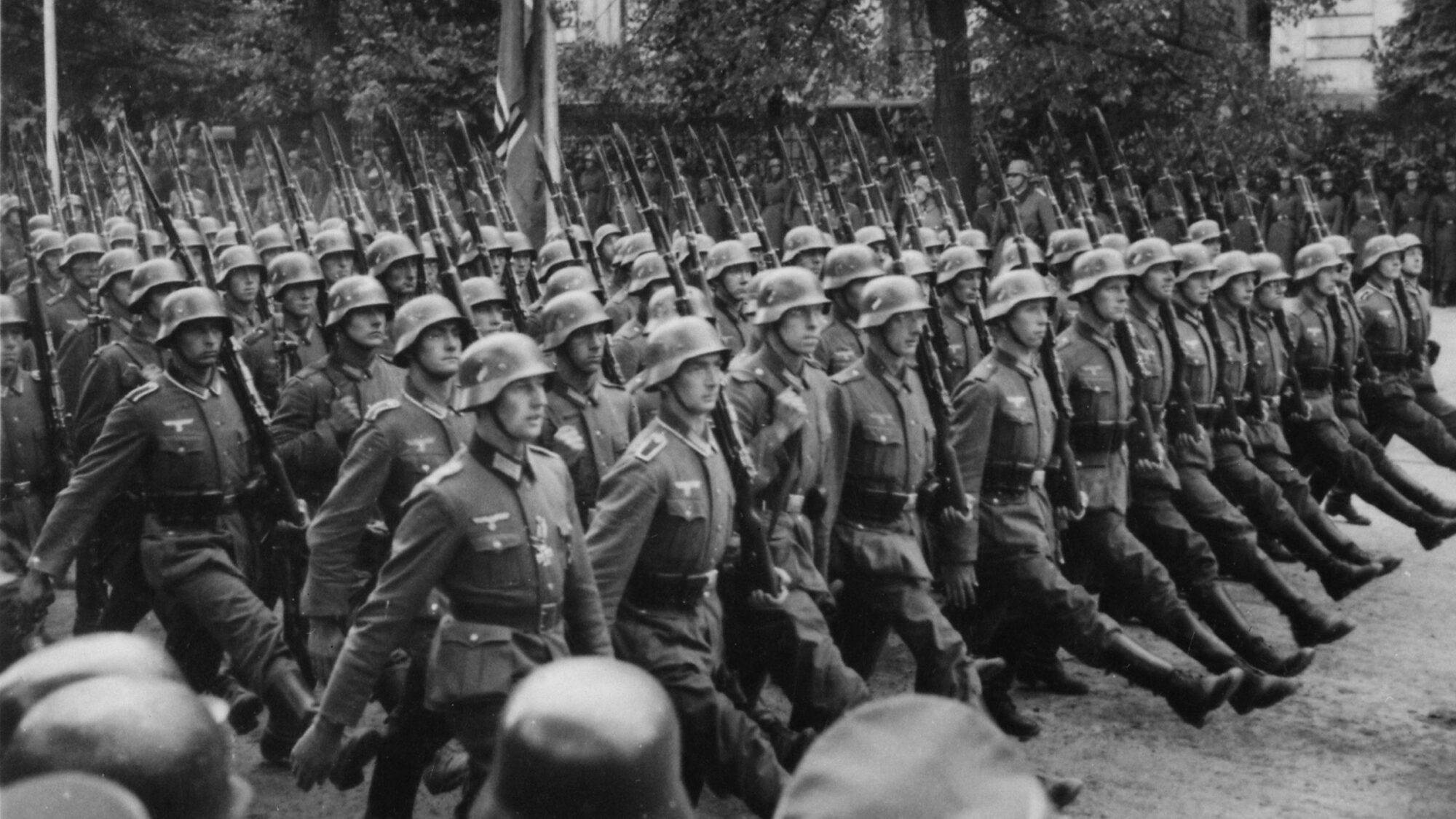

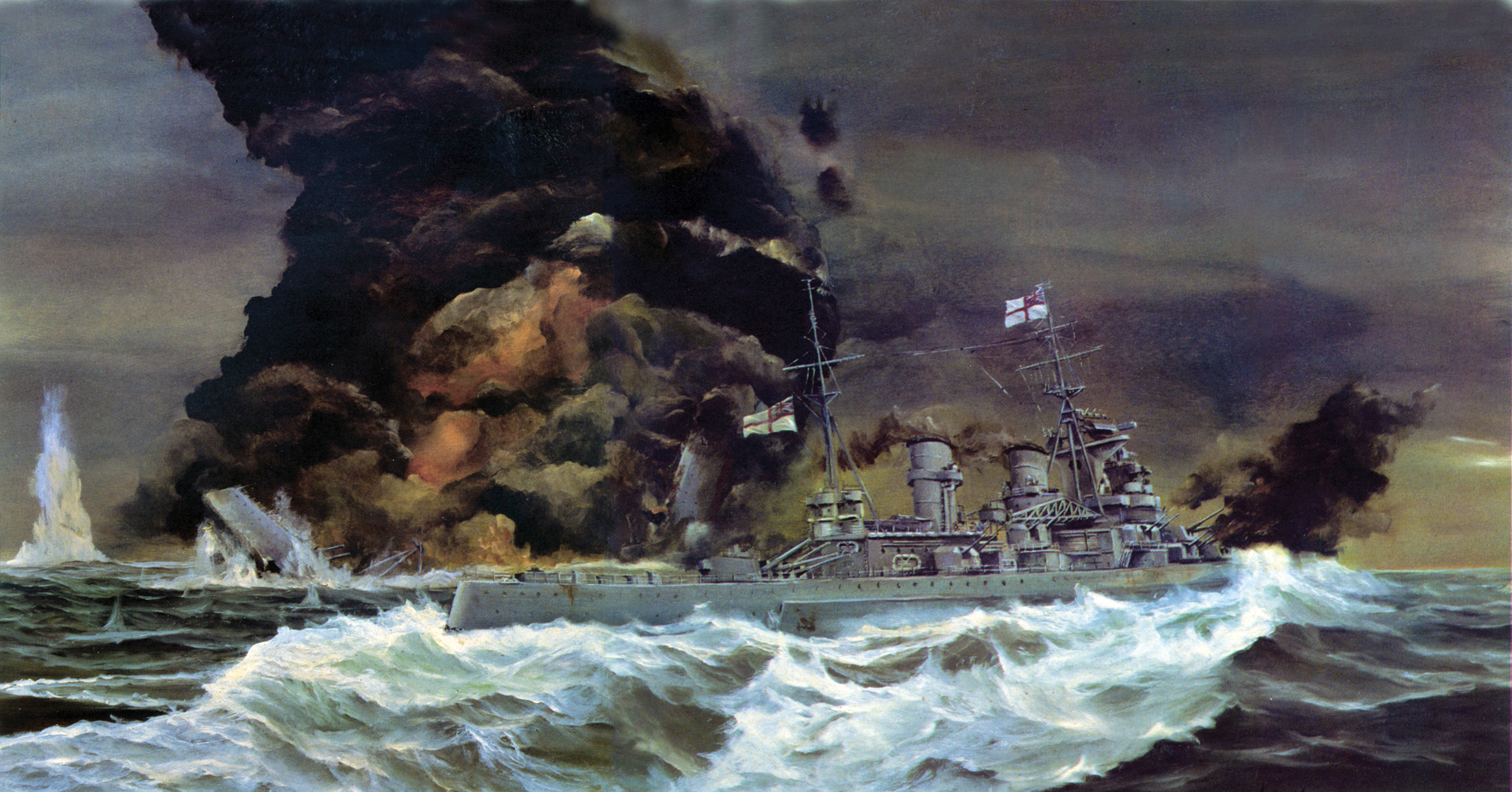
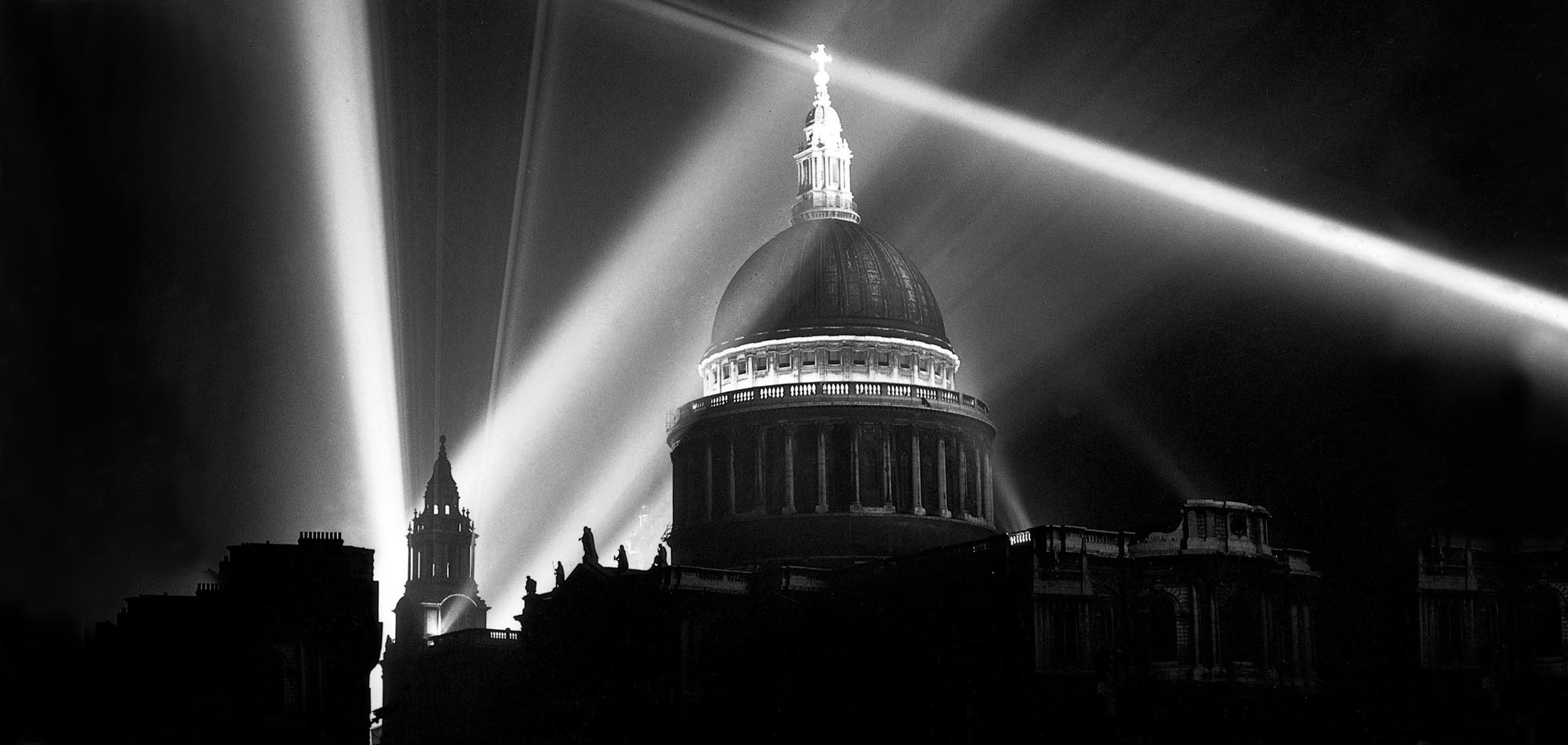
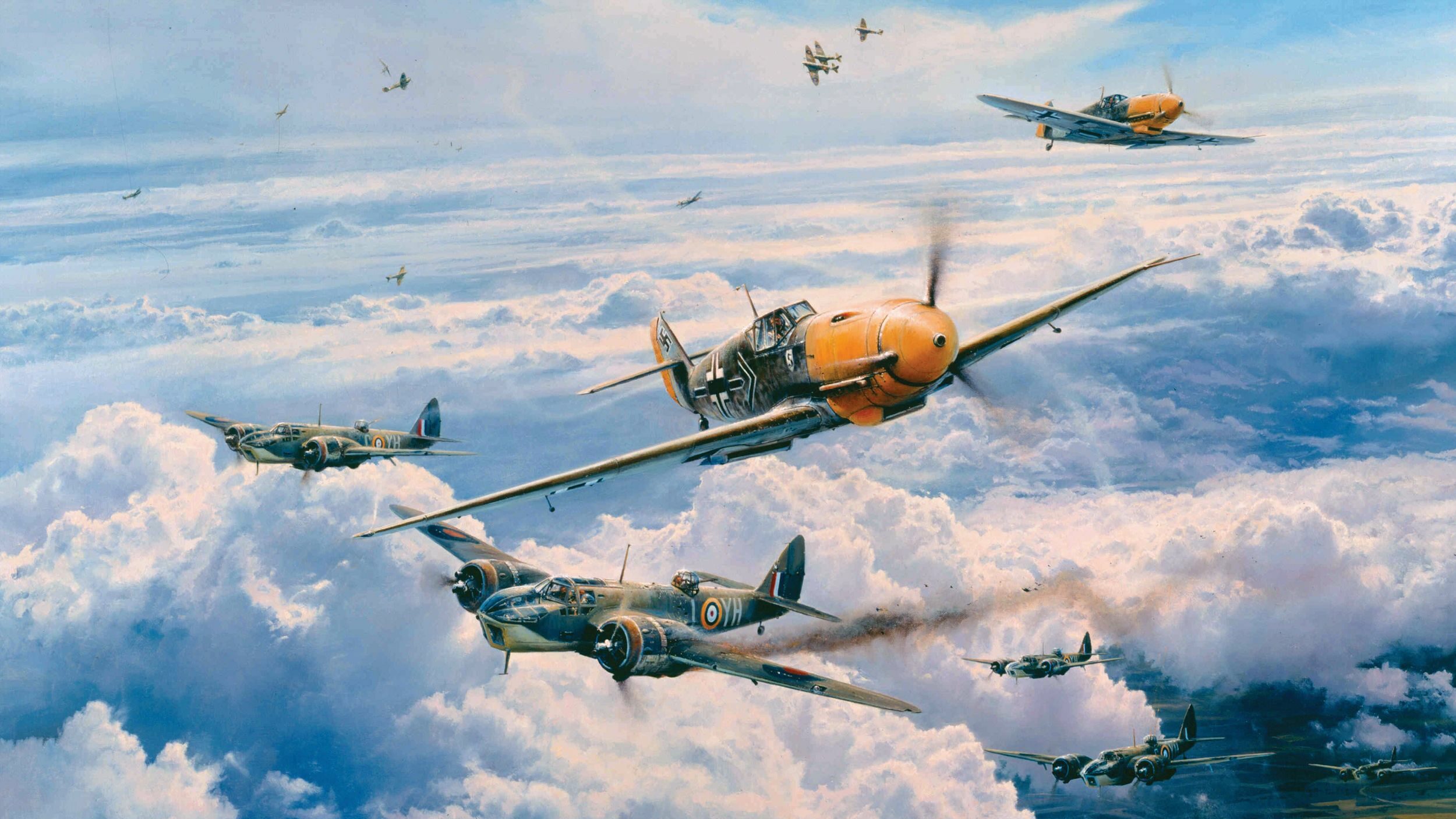
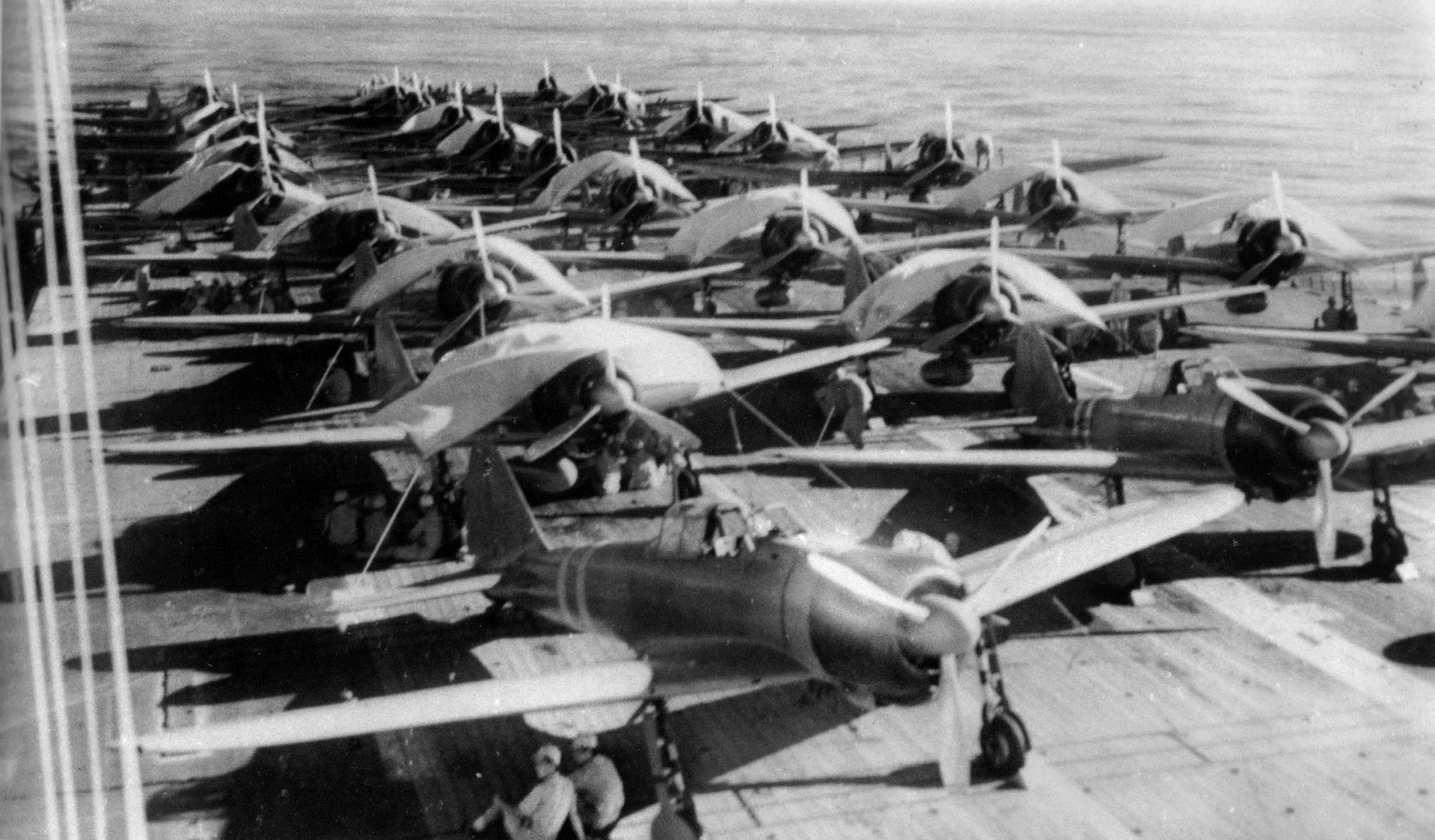
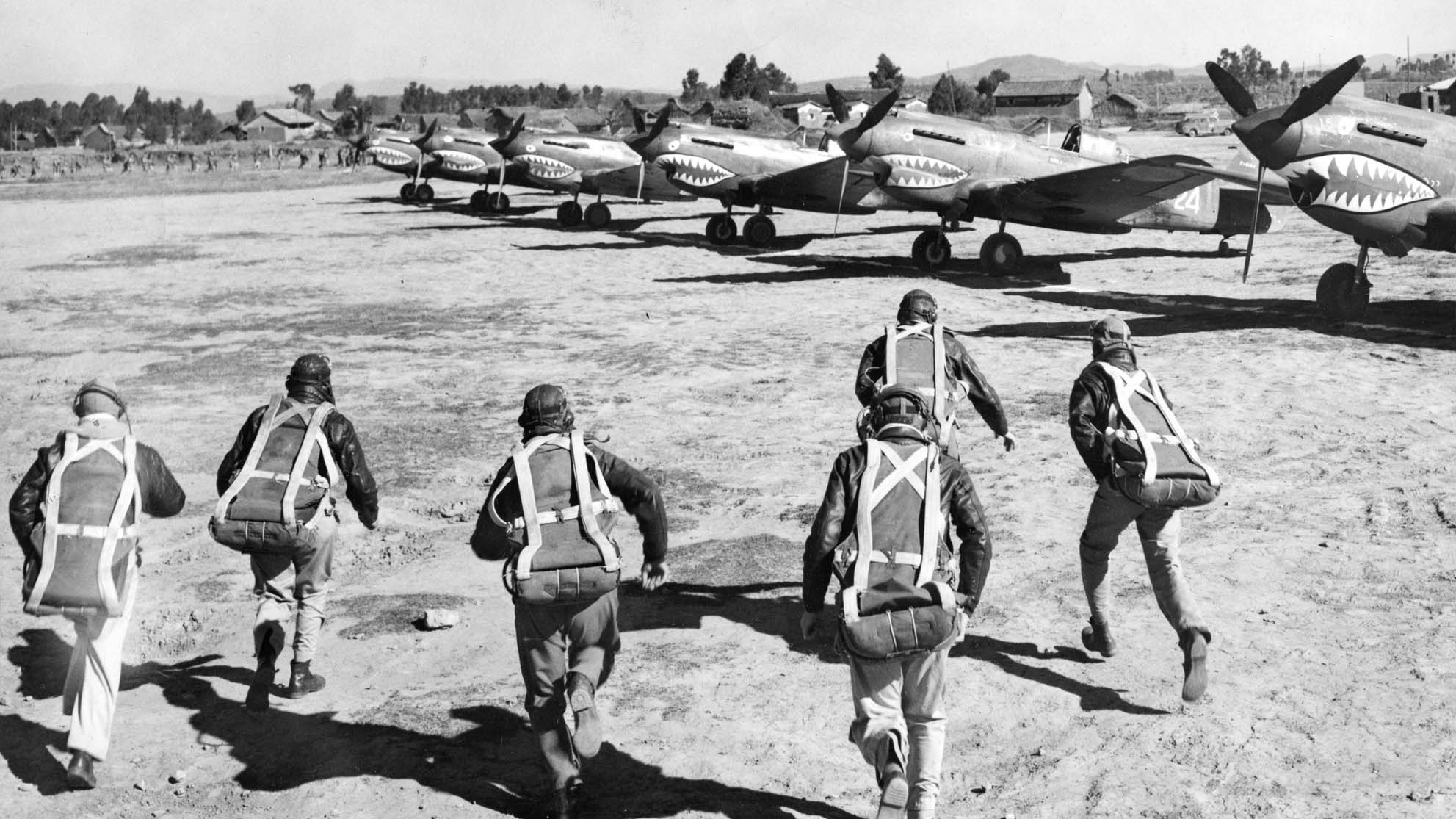
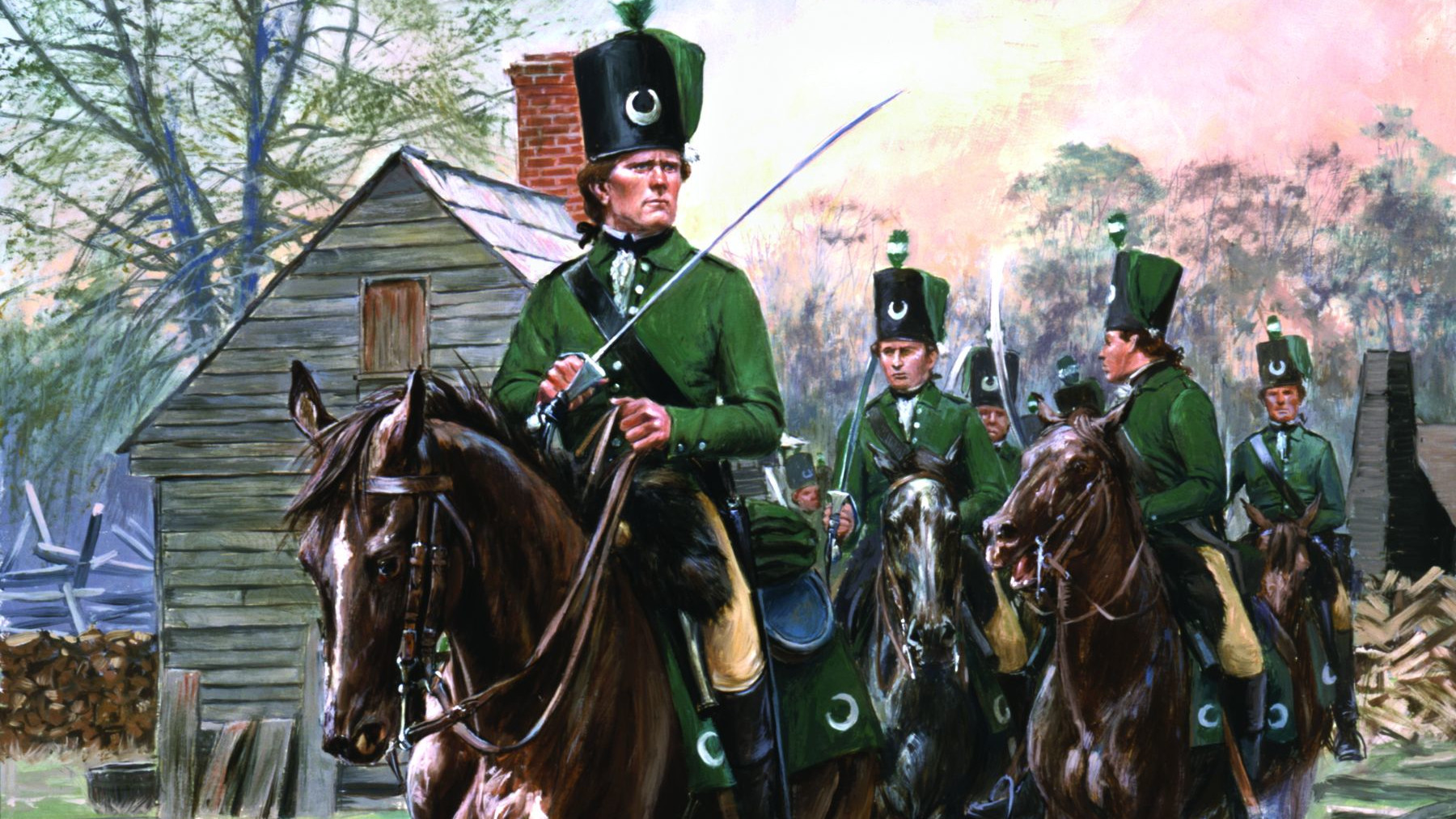
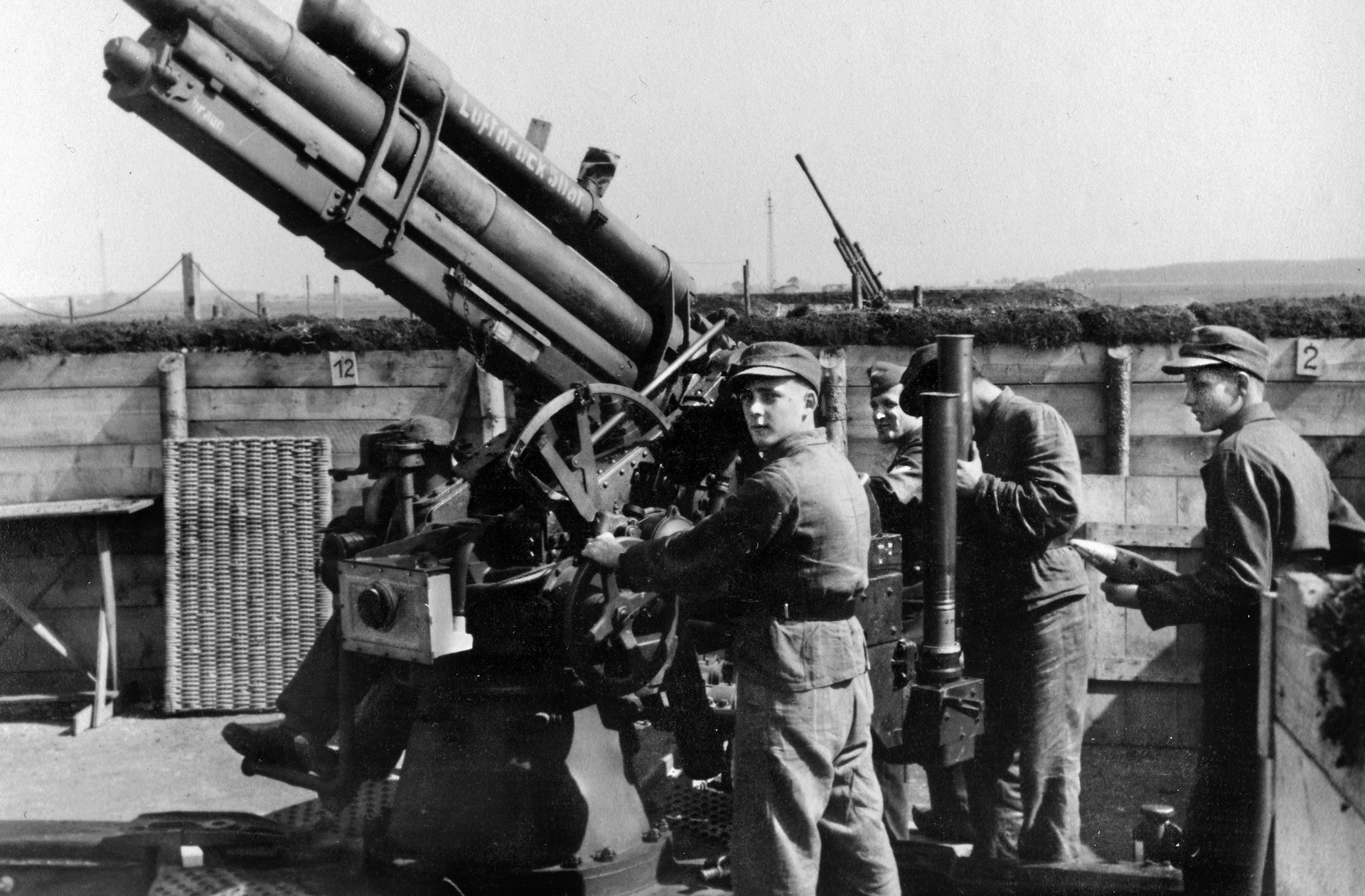
Join The Conversation
Comments
View All Comments